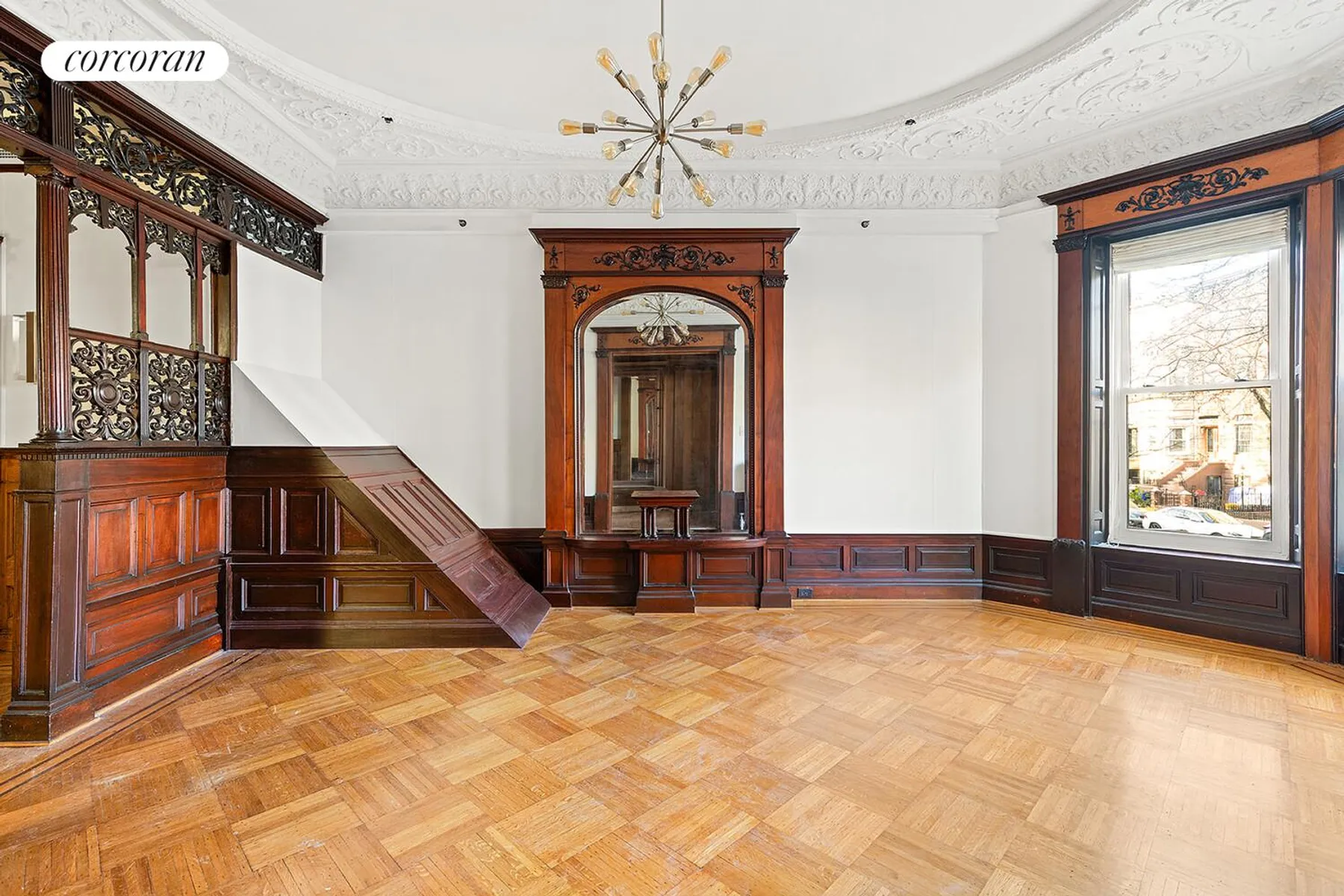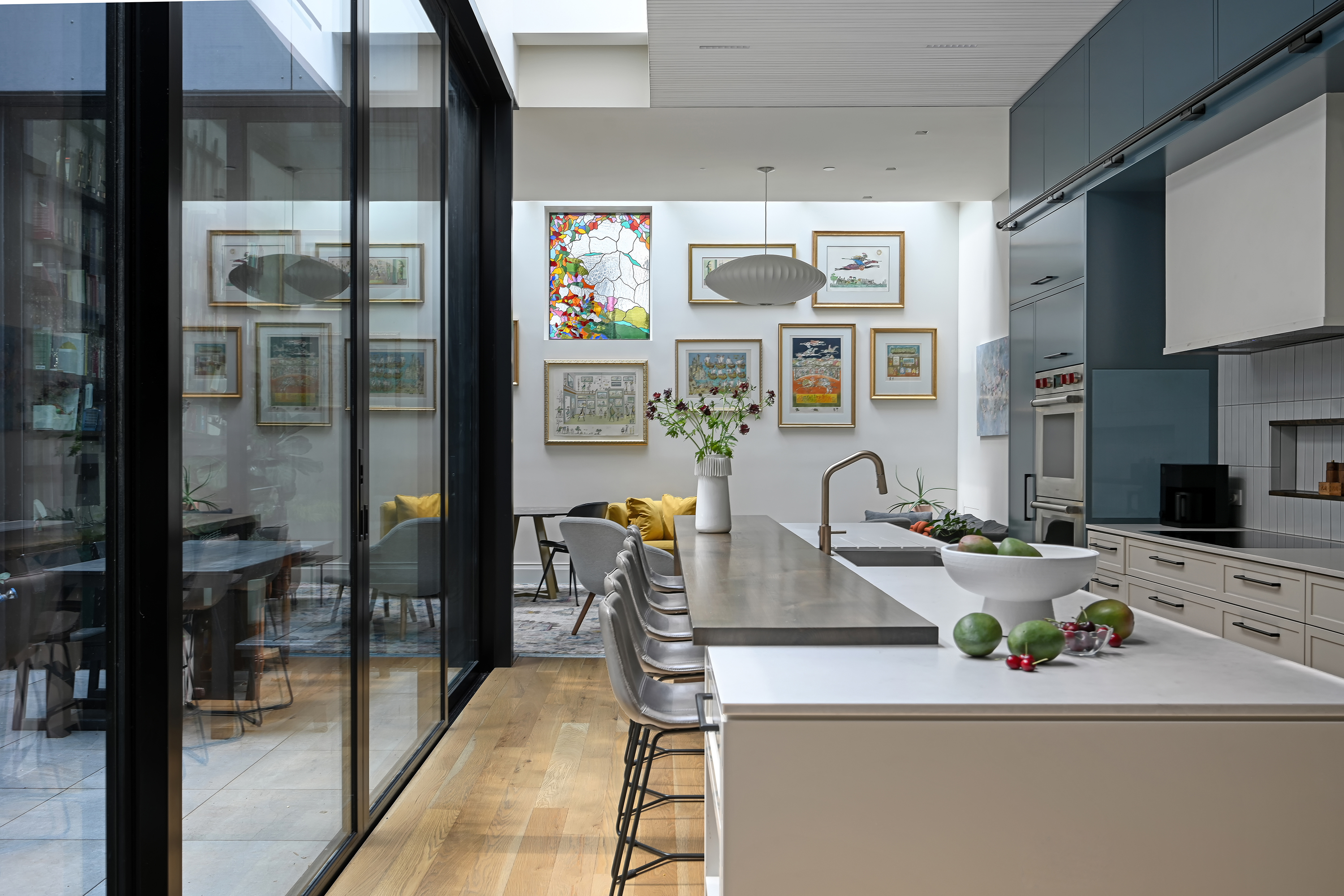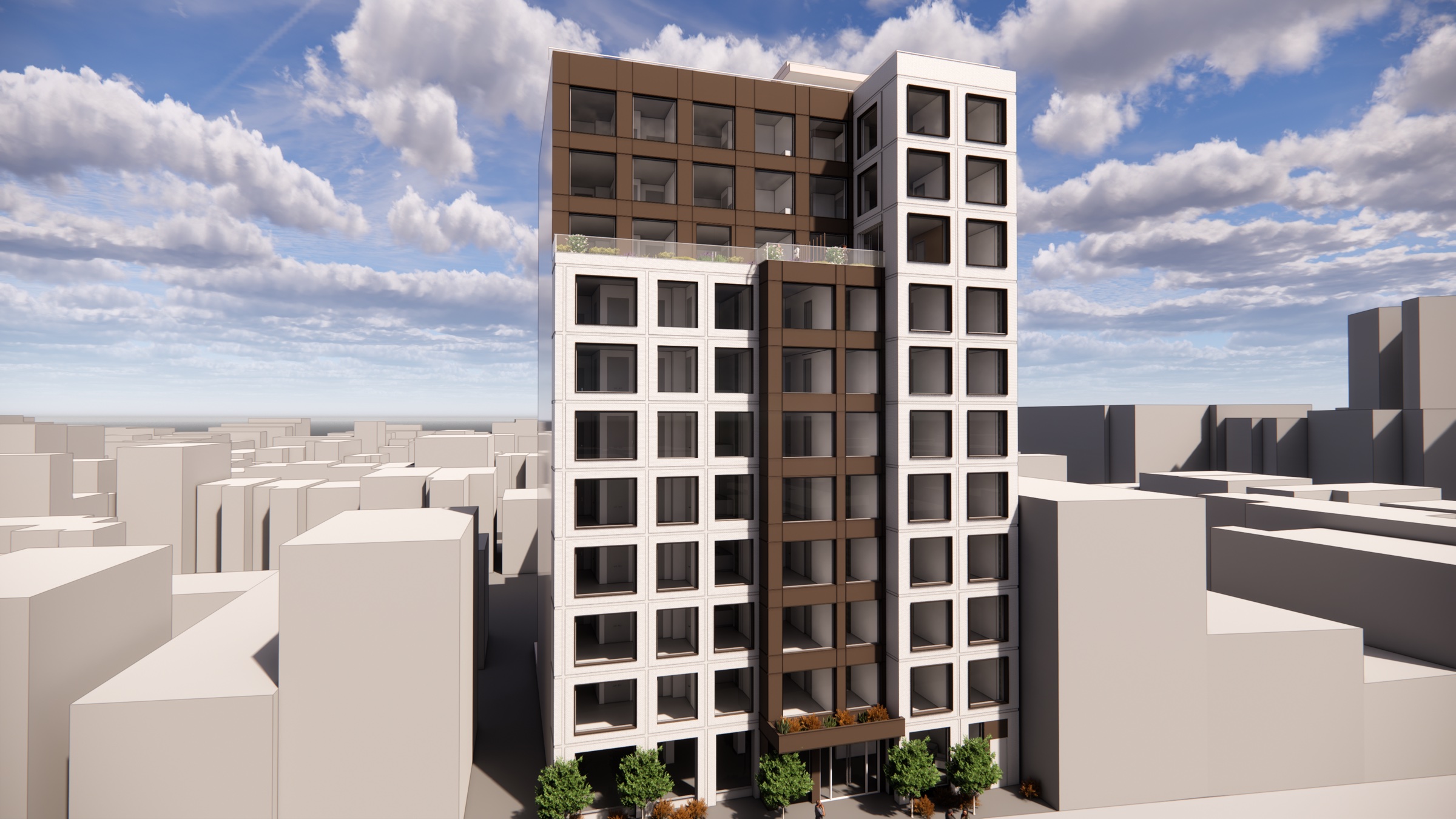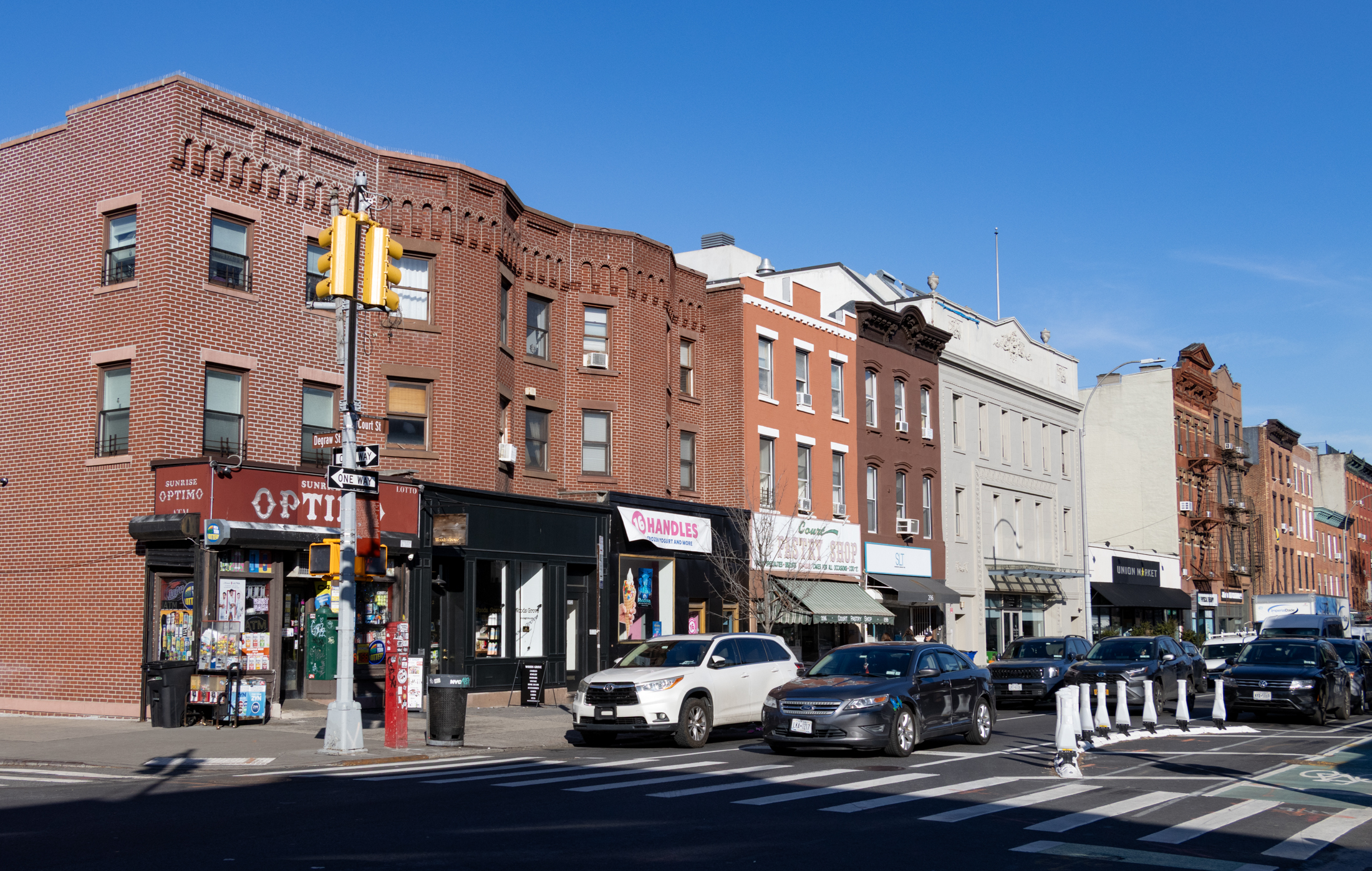Bursting the Bubble Bubble
Smart Money columnist Ray Hennessey thinks all the chatter about the real estate bubble bursting is way overdone. Sure, prices are lower and rates are higher, but there are still buyers and, unless you bought too much house with an unwise mortgage instrument, the world isn’t ending: What may be different now than, say, even…

 Smart Money columnist Ray Hennessey thinks all the chatter about the real estate bubble bursting is way overdone. Sure, prices are lower and rates are higher, but there are still buyers and, unless you bought too much house with an unwise mortgage instrument, the world isn’t ending:
Smart Money columnist Ray Hennessey thinks all the chatter about the real estate bubble bursting is way overdone. Sure, prices are lower and rates are higher, but there are still buyers and, unless you bought too much house with an unwise mortgage instrument, the world isn’t ending:
What may be different now than, say, even a year ago is that these folks are more price-sensitive. They have choices, and less competition, so they’re in a position to negotiate. As a seller, I had to respond by listing my place at a realistic price, even, in some cases, undercutting the price tags of comparable homes in my area. Shudder the thought…Reasonable rates, a healthy inventory, realistic prices. Ayn Rand would be proud.
Of course, Hennessey admits, as someone who has a lot to lose if this is a bubble, he’s not exactly unbiased.
Bursting the Bubble Bubble [Smart Money]





My sympathies, how frustrating. It’s hard to comment though, not knowing location and age and architecture of your house for comparison. I just know my old house was in a neighborhood that had become very fashionable over recent years. And the house had beautiful bones, and all the original 20’s details right down to the doorknobs. Anyway regarding the traffic and sprawl comment from someone else before, I would agree and add that I had two different neighbors near that house in L.A. who told me the whole reason they had fled the suburbs of Orange County was because they refused to spend 2 hours each way commuting in and out of the city every day anymore. So they happily paid more money for less space, simply to move into town and cut their commute down to 20-30 minutes. And yet for my friend who was first generation American, her Mexican parents’ big dream was a big piece of land and big house, which meant choosing the suburbs. If we talk to people and listen to their reasons for living where they do, the bigger overall trends do seem to reveal themselves.
4:44 –We just sold a house in LA. One hundred people came to the first Open House and no offers. The market has just died out there. I can assure you that your house was the exception, not the rule.
Anon – 4:44pm. I think you summed it up perfectly. When to buy is based more on comfort than anything else. No one should sit around and refuse to buy something now, because they think it will come down in a year. If you are looking for the long term, you should buy something, if you like it, and can afford it, and you honestly believe the price is reasonable (i.e. you are not getting taken advantage of).
All really good points, 4:33pm. It’s evident the old wisdom about suburbs and trends in migration don’t apply anymore. Frankly, I just don’t feel that discouraged. Looking at L.A. again, the RE news for L.A. has been even worse than the news for NYC, and yet I just found out a 1920’s house I bought in L.A. for $230K in 1994 then sold in early 2002 for $530K, just sold again last week for $1.25 million. Only two weeks after the sellers listed it. They only did a little more renovating than I did – I did the hard stuff (electric,plumbing,furnace). And I’m like, what! That the house sold so fast in what is supposed to be the city where absolutely nothing is selling right now? So I dunno. I’m still going to say I’m really glad we bought this year in Brooklyn, and not next year. Because there are definitely people out there looking to buy. I’ve seen lots of people attending the open houses, even if offers are slow right now. It’ll just be interesting to see how it all plays out. Regardless, no matter how it turns out, for people like us looking for a home to live in long term, there’s no sense in waiting when you find something you love. Period.
But are the suburbs getting hammered precisely because people are staying in the cities? The suburbs have been getting larger and larger and sprawl is getting worse. Are people making a lifestyle choice to use their cars less? With gas prices getting higher and environmental issues coming to the forefront, could we be seeing a seismic shift in lifestyle decisions? On the other hand, for immigrants moving to the suburbs, perhaps they are just trying to get a piece of the American dream that our parents had and maybe some of us are now rejecting?
My statement regarding suburb taxes was not a suggestion that it is a no brainer. In fact, I was stating that to some it might be more beneficial to live in the suburbs. Further, I also readily admit that schools in the city are not as bad as they once were, and hopefully they will never return to that level. My comment again admittedly left out many factors, because I did not want to write for 20 minutes, but my thinking is based on the simple premise that if prices fall enough in the suburbs, prices will also fall in the City. And currently, the suburbs are getting hammered.
True, 3:36, interesting. I had already noticed that trend back in the 90’s in California. The Latino, Asian and Middle Eastern immigrants were choosing the suburbs, and whites were choosing the city. Young white professionals preferred the more historic neighborhoods and architecture, not suburban “mcmansions”. So the formerly elegant neighborhoods located betweeen West Hollywood and Downtown, which had slumped into blight in recent decades, made a big comeback. The turnover in those neighborhoods was SO fast. As much as anything else, this trend was what was behind rising prices inside all the urban cities, and it’s a trend that’s not going away.
Lastly, as for 3:46pm’s post, lots of people in Brooklyn put their kids in public schools. The schools are good enough for that here. At least up until high school, for sure. So the argument that it’s worth it to spend $300K to $500K more in property taxes over the next 20 years in the suburbs surrounding NYC (especially the suburbs with good schools) just doesn’t hold water for me. Plus isn’t school tuition a writeoff too? And as for getting the same house, we just got MORE square footage in our house we bought in Brooklyn than my friend has who pays $15,000 a year in property tax out in Long Island (and she’s not even in a fashionable town either).
I agree with a prior comment regarding property taxes in the suburbs. They definitely have to be accounted for when performing a cost benefit analysis. These taxes impact inidividuals differently, namely familes and married couples looking to begin a family. By paying these taxes, a family can avoid the cost of private schooling, which is a potential problem within the city. Also assuming property taxes of upwards of $20000 a year, this translates to a monthly cost of $1667 to add to any mortgage. Assuming you could put that amount to a greater mortgage living in the City, I am not sure you will get the same house in the City as the suburbs, especially if the suburbs continue to drop.
As to the other response to my 2 cents, I disagree with the conclusion that the New York City market dictates the surrounding area. Currently, what is no considered the suburbs around NYC has extended to Pennsylvania and the hamptons in LI, and well beyong weschester (north fo teh city), these areas used to be considered vacation areas, but are now used as legitimate living areas for professionals working within NYC. Part of this is due to the rising cost of housing within NYC, and part is due to the improvement in mass transit from these areas. That said the plausible living area for a professional working in NYC has grown, and these areas represent an alternative to living in NYC. If these areas lose value, and drop to a point where it is a bargian to live their as opposed to the City, the trend for city life will change. As much as we love Brooklyn brownstones and the unique neighborhoods, it is naive to believe this will keep it from a substantial correction if the surrounding areas are faced with one. Do not forget that the Brooklyn we all love now, is not new, although some want to believe they recently discovered it. Actually Brooklyn had been here for well over a 100 years, and the have been tiems when everyoen wanted to live in Brooklyn, and there were times when no one wanted to live here. the one driving factor is usually the most simple economic principle, also taught in economics 1A and 1B, probbaly on the first day: cost benefit analysis.
Very interesting point on the suburbs. If you heard the story on NPR yesterday about the changing demographics of the US, as well as the article in the Times today about Metro North, it seems it’s actually immigrants who are moving to the suburbs in droves these days. Granted they’re probably not living in the towns with the ginormous property taxes but it’s the very opposite of “white flight”.